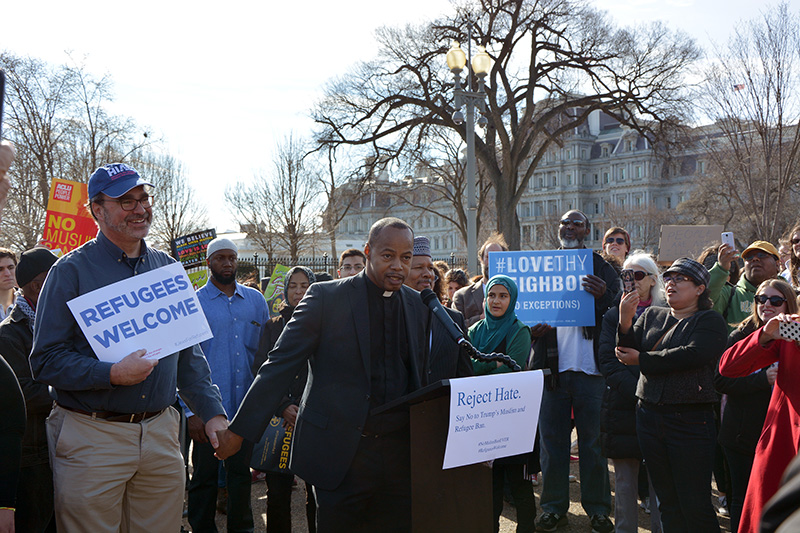
Does anyone think that, if it had been a troubled Muslim youth who was arrested for killing 17 students at Marjory Stoneman Douglas High School, President Trump would be tweeting out concerns about mental health?
Of course not. You and I and everyone know that he’d be denouncing radical Islamic terrorism. And that knowledge lies at the heart of the latest judicial decision on his travel ban, issued Thursday.
Writing for a 9-4 majority of the 4th Circuit Court of Appeals in International Refugee Assistance Project v. Trump, Chief Judge Roger Gregory put it this way: “Plaintiffs here do not just plausibly allege with particularity that the Proclamation’s purpose is driven by anti-Muslim bias, they offer undisputed evidence of such bias: the words of the President.”
As in, for example, an August 17, 2017, tweet in which he endorsed an apocryphal story involving General Pershing and a purported massacre of Muslims with bullets dipped in a pig’s blood, advising people to “[s]tudy what General Pershing…did to terrorists when caught. There was no more Radical Islamic Terror for 35 years!”
The majority, wrote Gregory, could therefore not agree with the government’s position that the ban reflects “the compelling secular goal of protecting national security from an amply-documented present threat,” as opposed to “religious animus.”
Rather, an objective observer could conclude that the President’s repeated statements convey the primary purpose of the Proclamation—to exclude Muslims from the United States. In fact, it is hard to imagine how an objective observer could come to any other conclusion when the President’s own deputy press secretary made this connection express: he explained that President Trump tweets extremist anti-Muslim videos as part of his broader concerns about “security,” which he has “addressed…with…the proclamation.”
For that reason, the travel ban (now in its third iteration) violates the First Amendment’s Establishment Clause, which the Supreme Court has interpreted as preventing the government from sending a message to adherents of any particular religious tradition “that they are outsiders, not full members of the political community.”
In dissent, Judge Paul Niemeyer did not dispute the evidence of Trump’s anti-Muslim bias. He simply contended that the only evidence of such bias the court was entitled to consider had to be in the text of the proclamation itself (and there was none).
“This case involves an Article III court’s bold effort to second-guess U.S. foreign policy and, in particular, the President’s discretionary decisions on immigration, implicating matters of national security,” Niemeyer wrote. “Our constitutional structure forbids such intrusion by the judiciary.”
In other words, an executive order relating to immigration and/or national security cannot be judged a violation of the Establishment Clause so long as it does not actually say that it is discriminating on the basis of religion.
The Supreme Court has scheduled oral argument for the case in April. One can hope that the justices will insist that the judiciary does indeed have the power to prevent religious discrimination by a president, regardless of where he emits his discriminatory intent.






